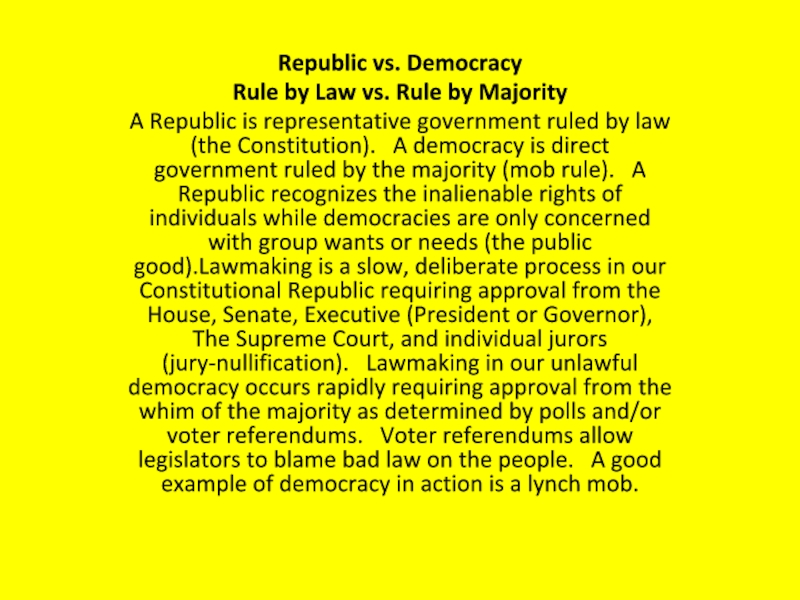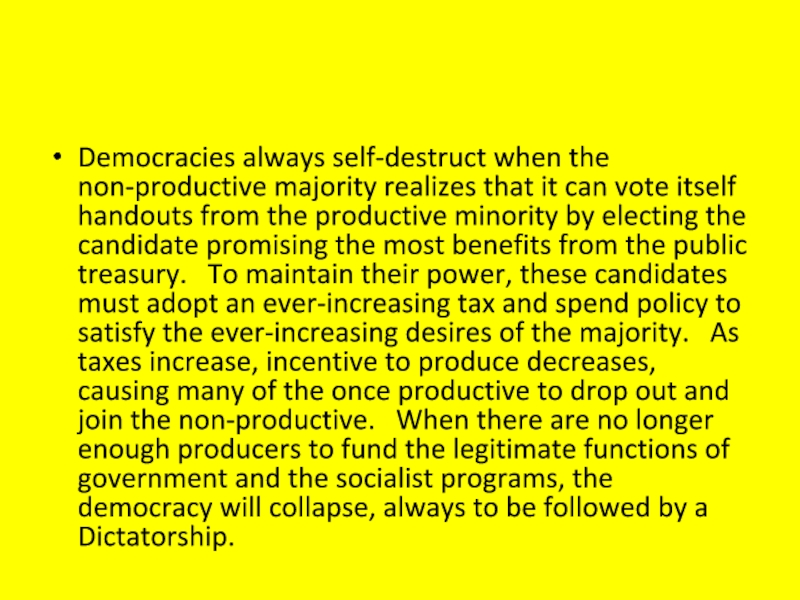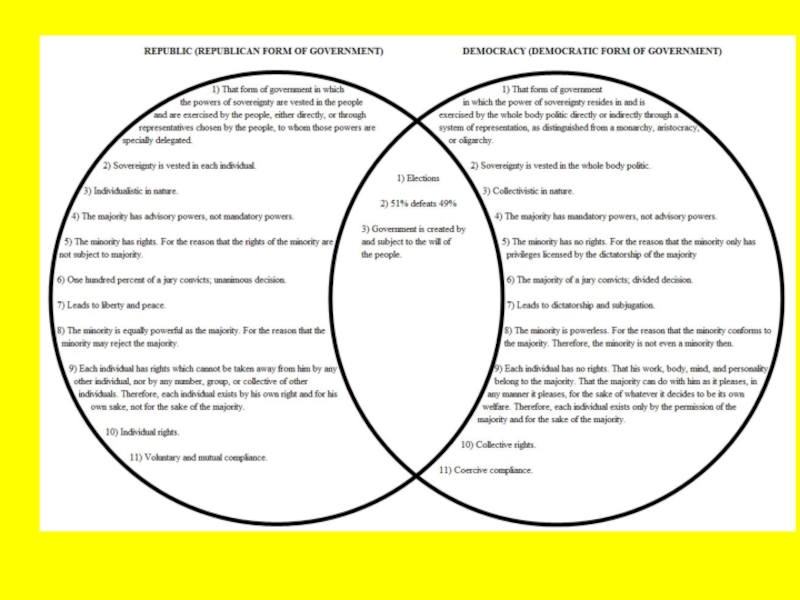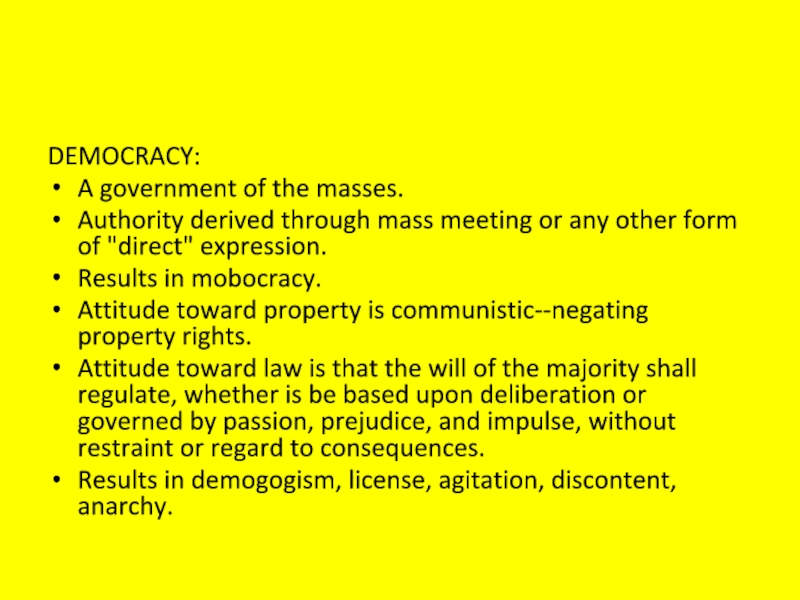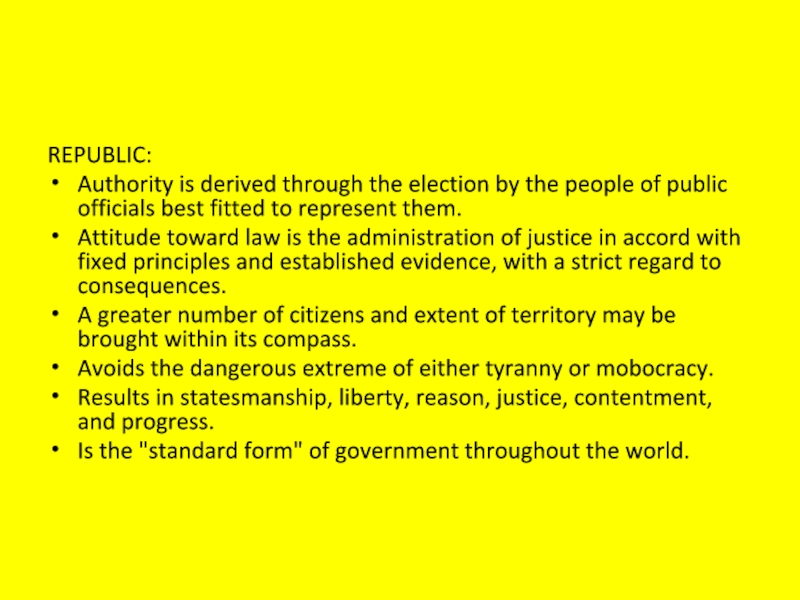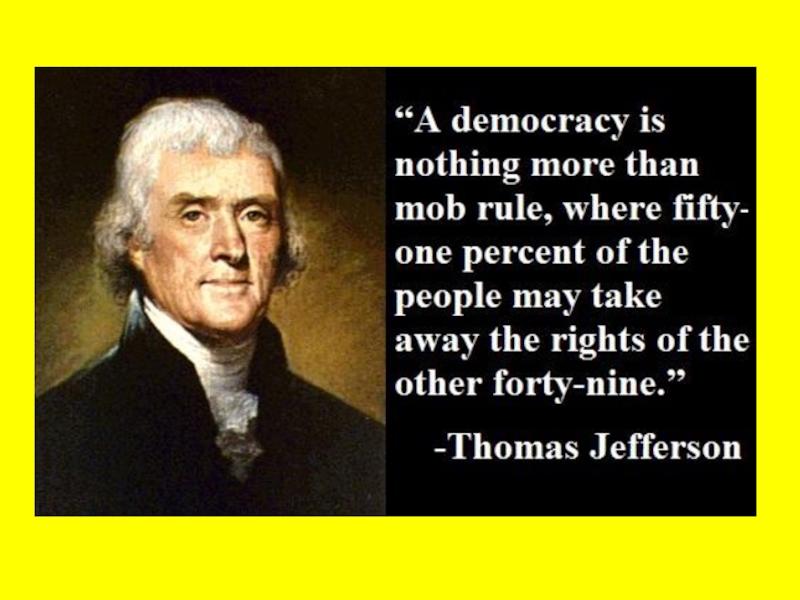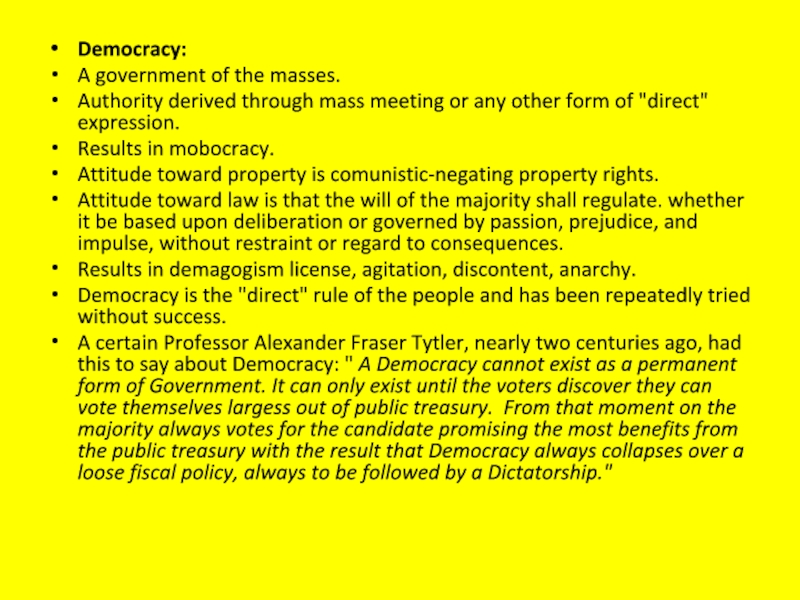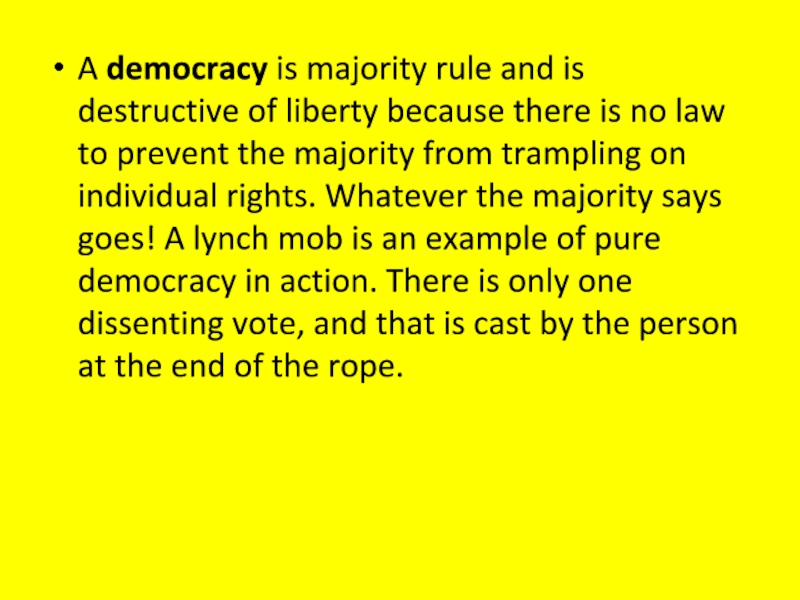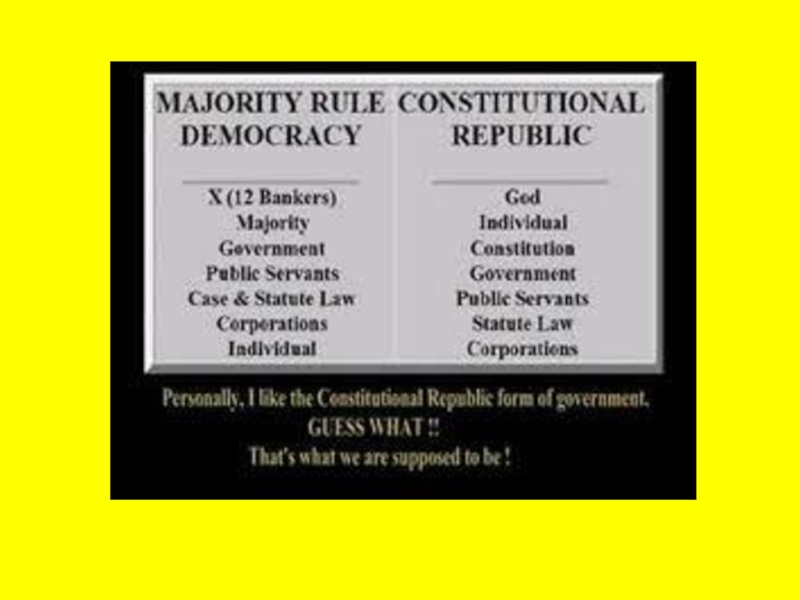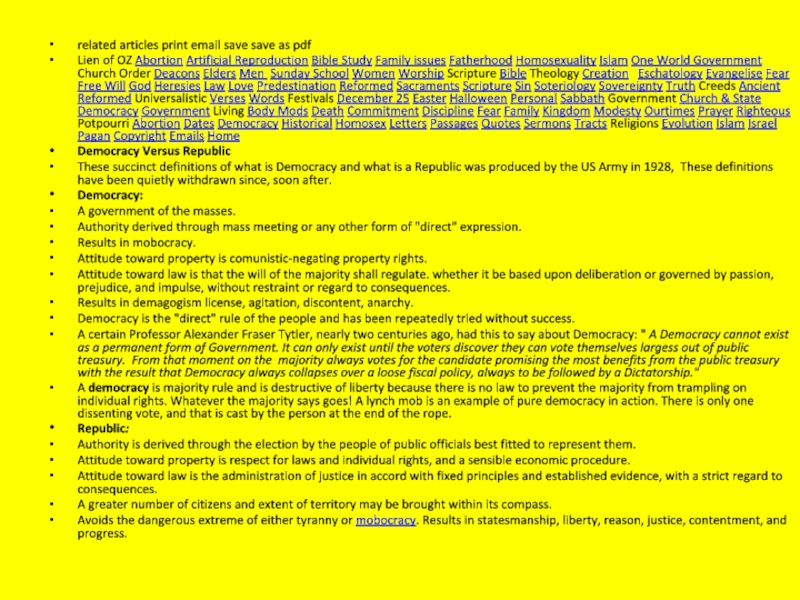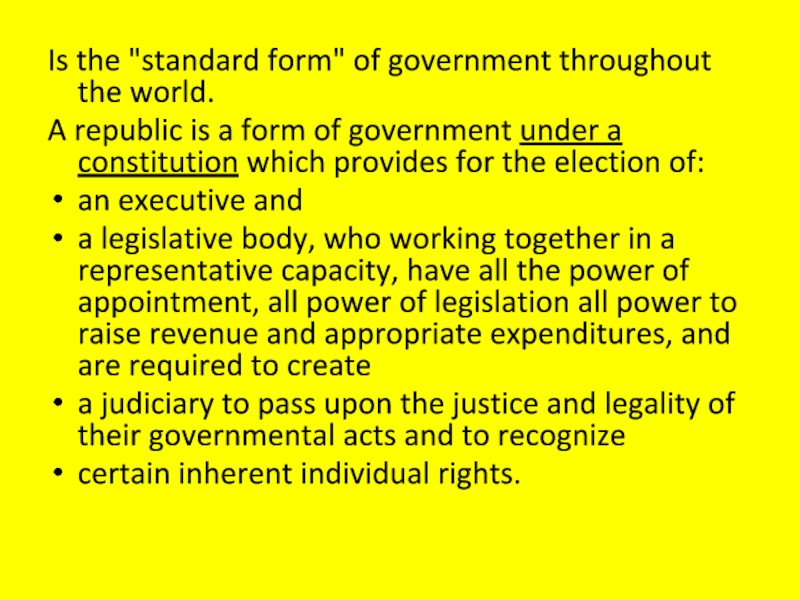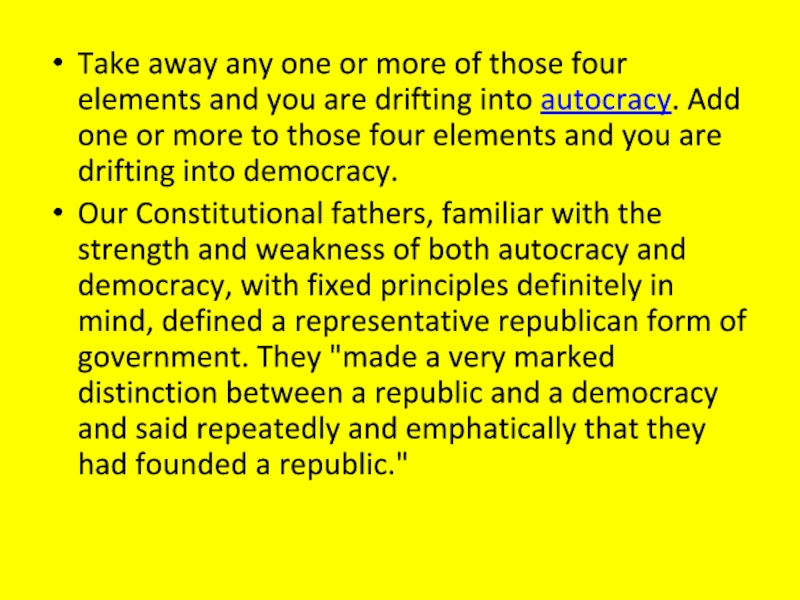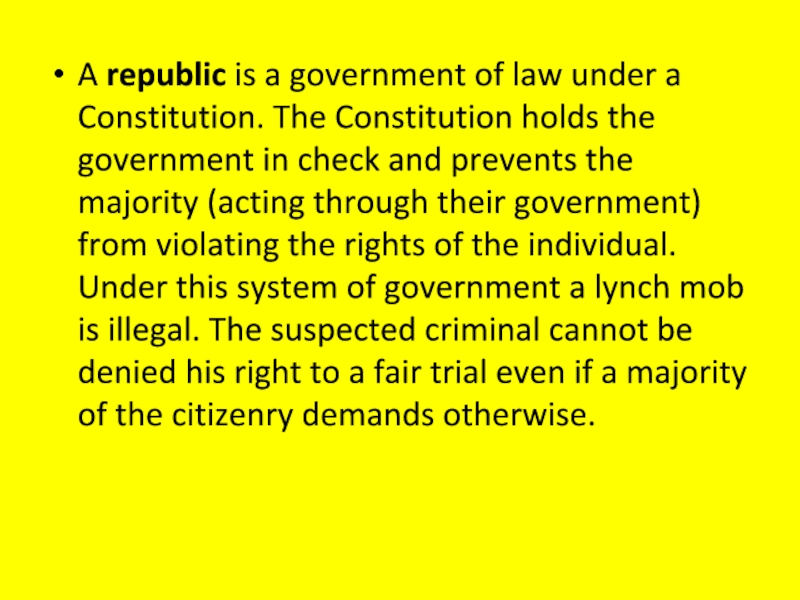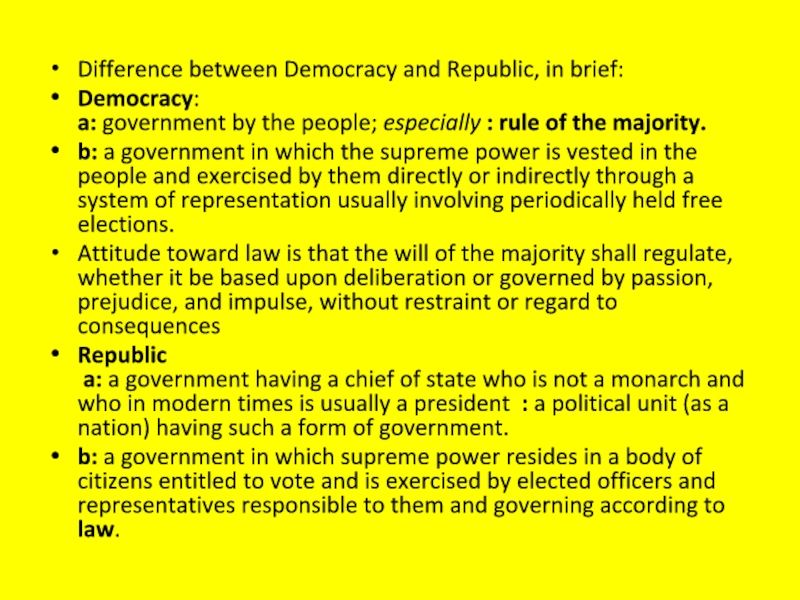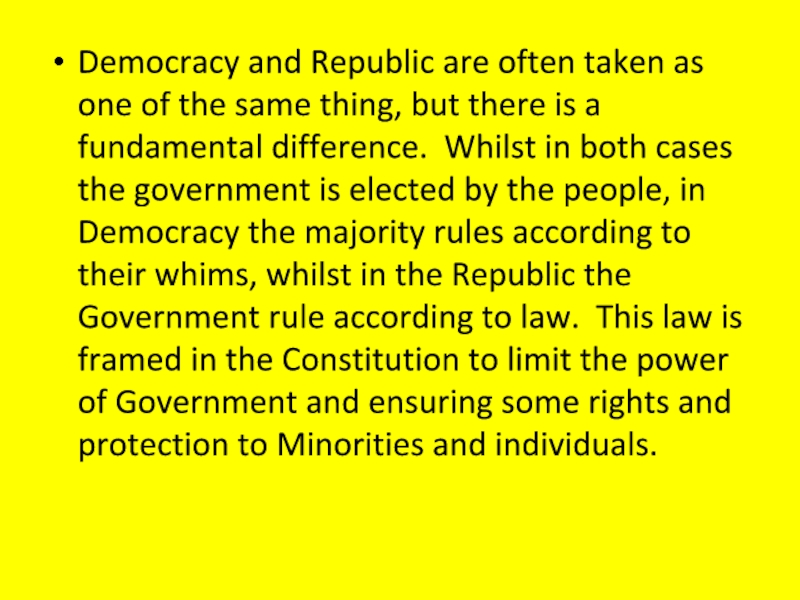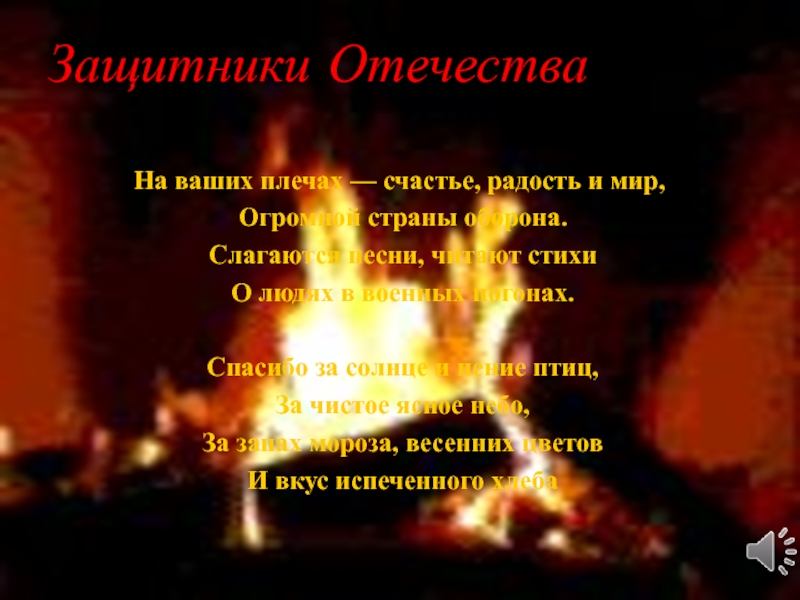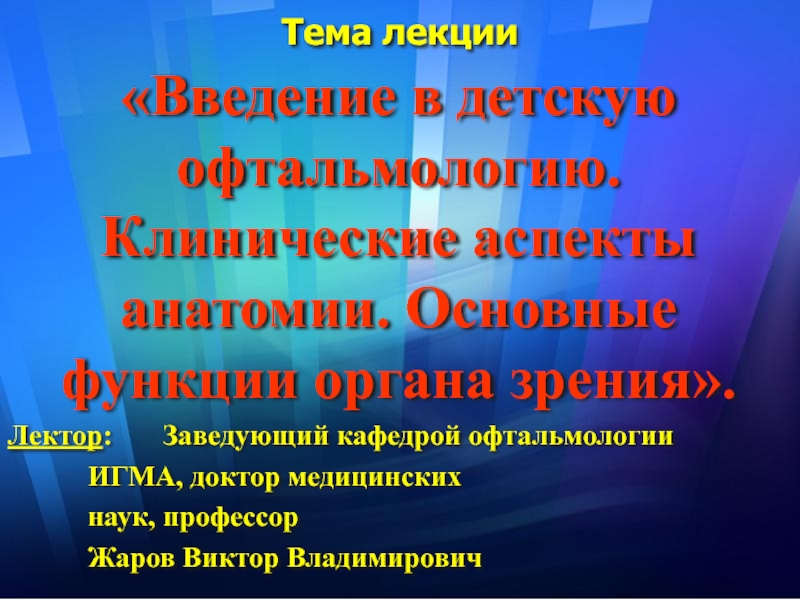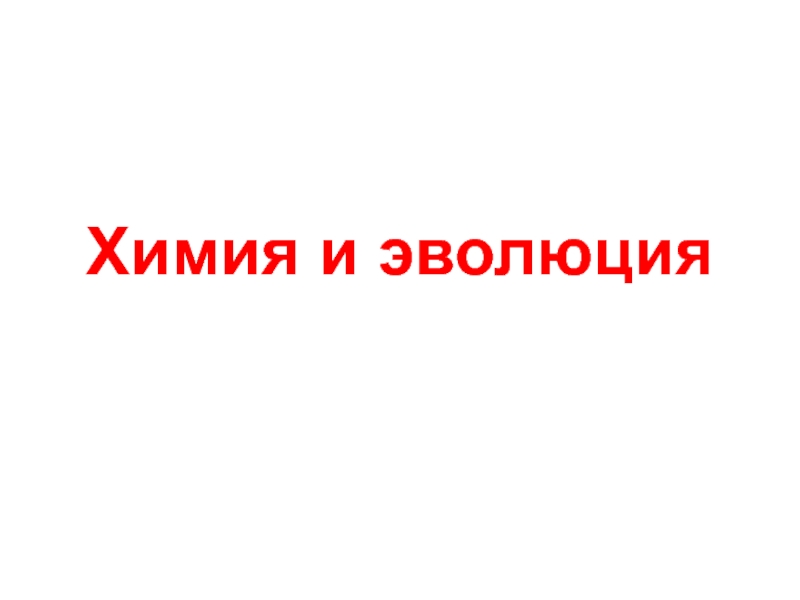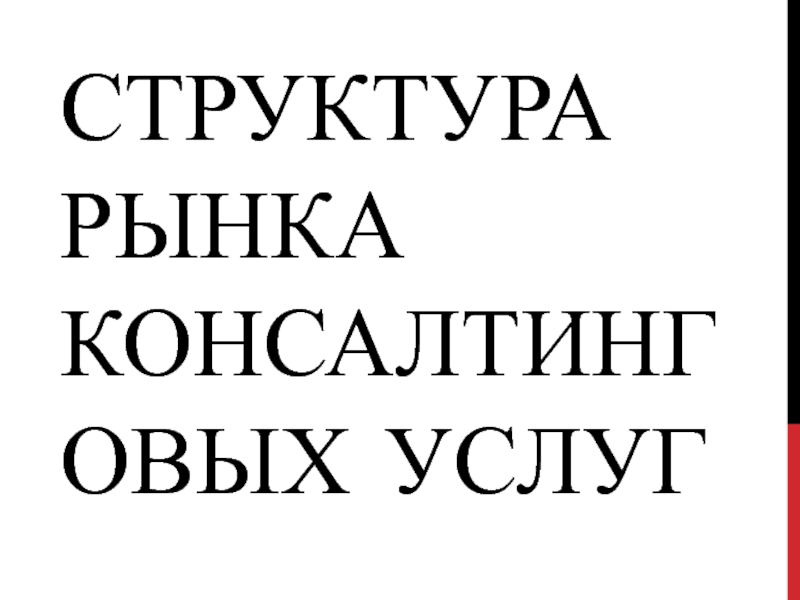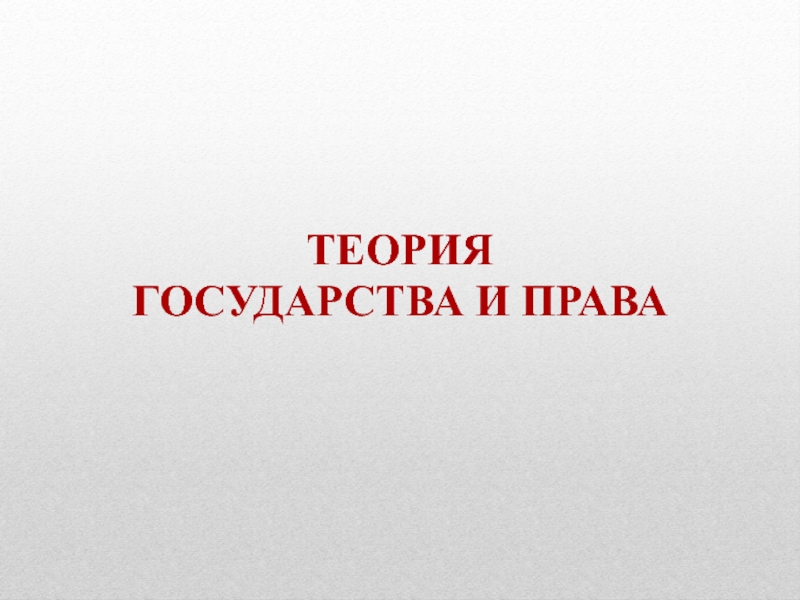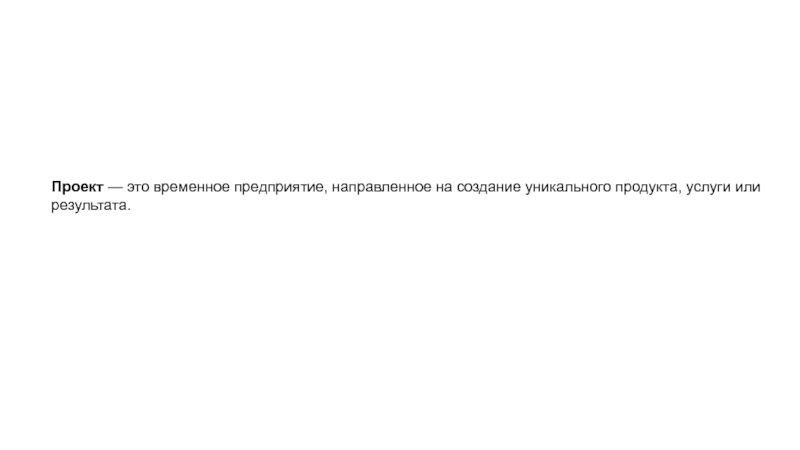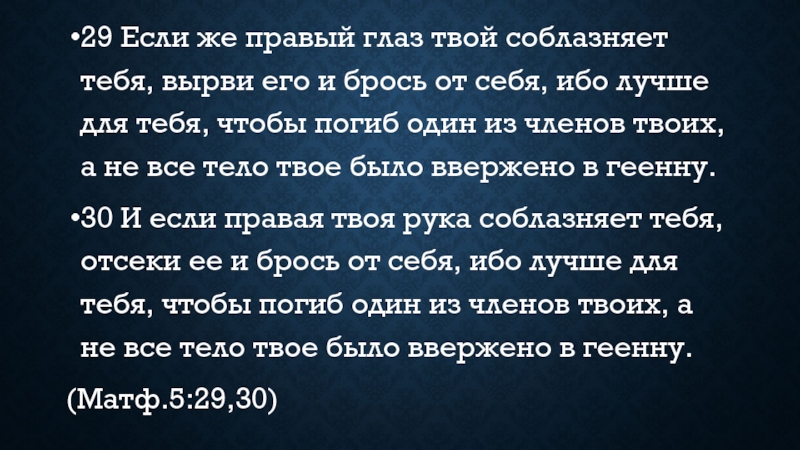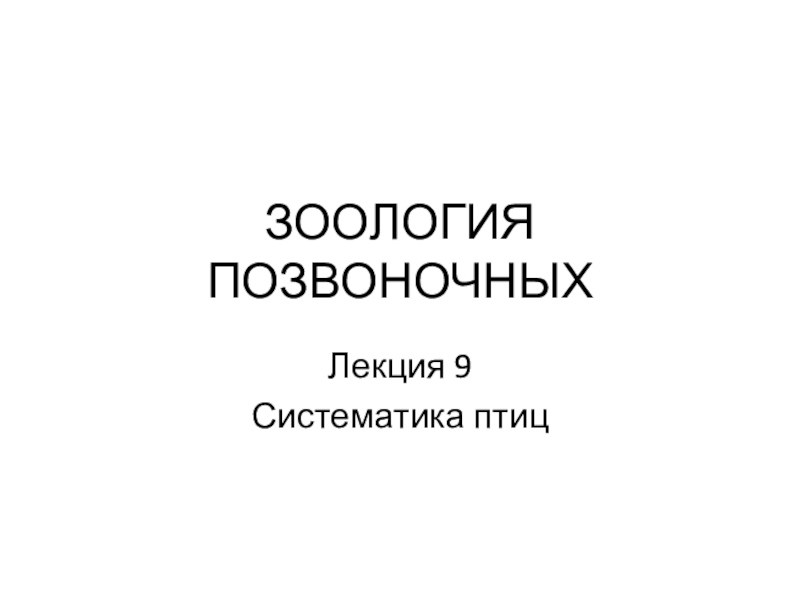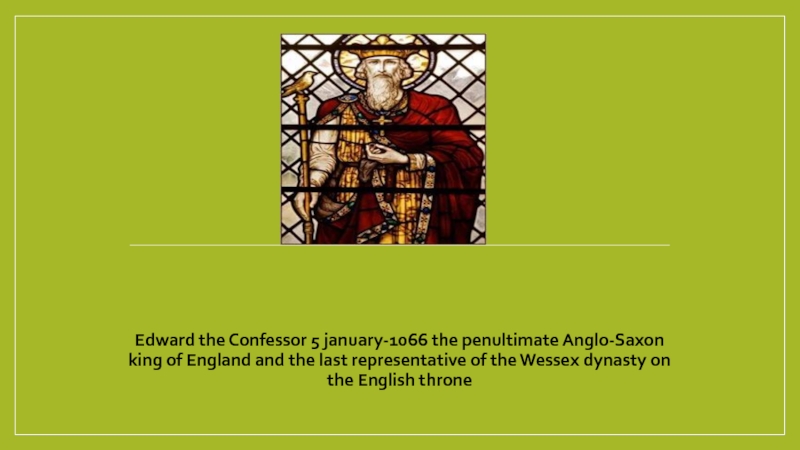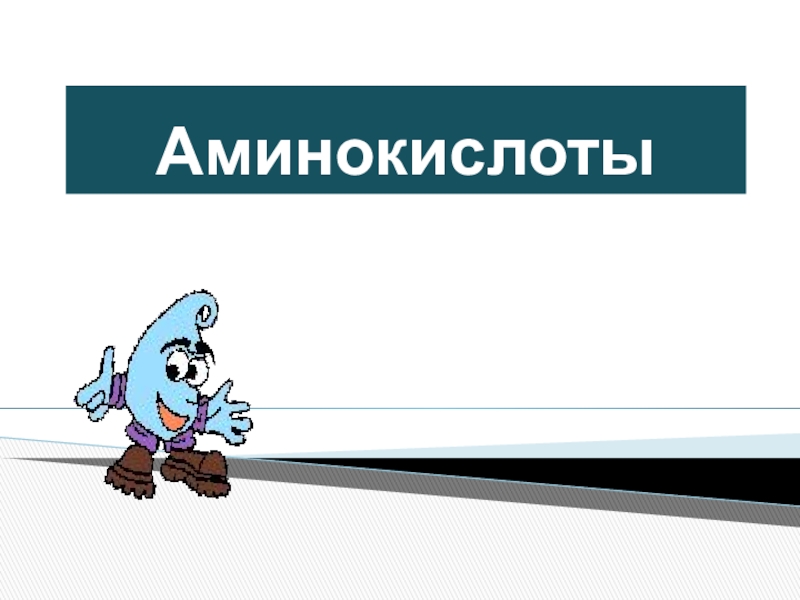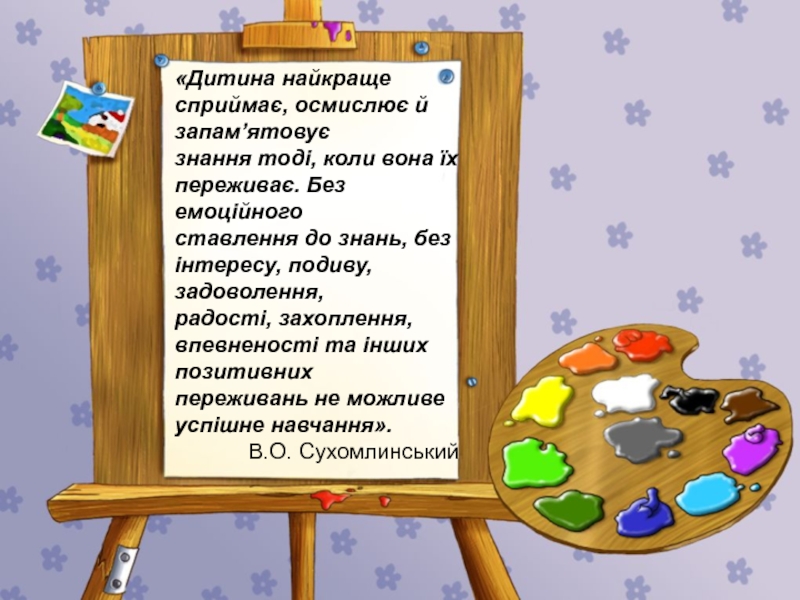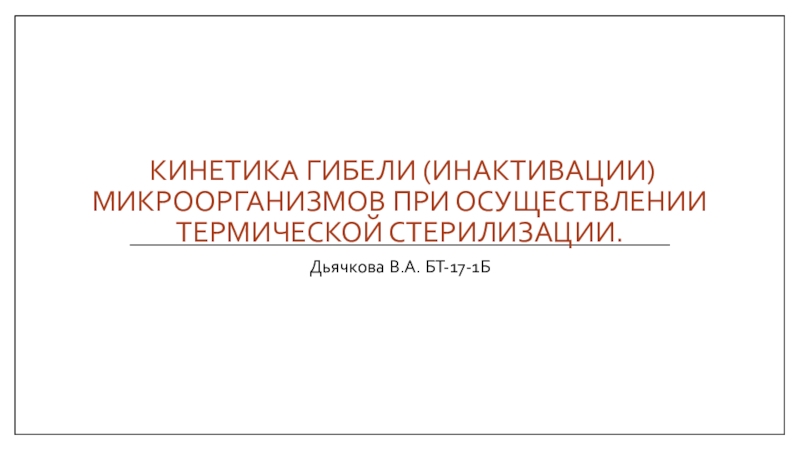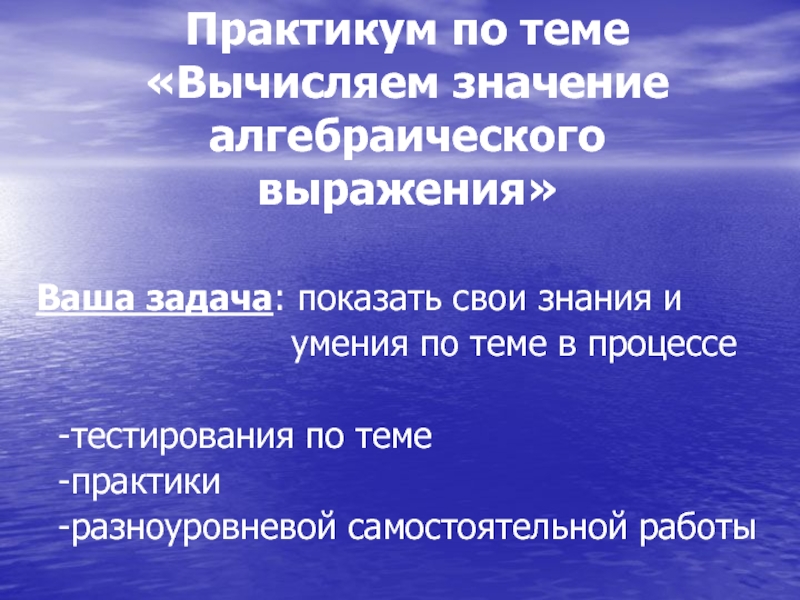Разделы презентаций
- Разное
- Английский язык
- Астрономия
- Алгебра
- Биология
- География
- Геометрия
- Детские презентации
- Информатика
- История
- Литература
- Математика
- Медицина
- Менеджмент
- Музыка
- МХК
- Немецкий язык
- ОБЖ
- Обществознание
- Окружающий мир
- Педагогика
- Русский язык
- Технология
- Физика
- Философия
- Химия
- Шаблоны, картинки для презентаций
- Экология
- Экономика
- Юриспруденция
Republic vs. Democracy Rule by Law vs. Rule by Majority A Republic is
Содержание
- 1. Republic vs. Democracy Rule by Law vs. Rule by Majority A Republic is
- 2. Democracies always self-destruct when the non-productive majority
- 3. Слайд 3
- 4. DEMOCRACY: A government of the masses. Authority
- 5. REPUBLIC: Authority is derived through the election
- 6. Слайд 6
- 7. Democracy:A government of the masses.Authority derived through
- 8. A democracy is majority rule and is
- 9. Слайд 9
- 10. related articles print email save save as
- 11. Is the "standard form" of government throughout
- 12. Take away any one or more of
- 13. A republic is a government of law
- 14. Difference between Democracy and Republic, in brief:Democracy:
- 15. Democracy and Republic are often taken as
- 16. Скачать презентанцию
Democracies always self-destruct when the non-productive majority realizes that it can vote itself handouts from the productive minority by electing the candidate promising the most benefits from the public treasury.
Слайды и текст этой презентации
Слайд 2Democracies always self-destruct when the non-productive majority realizes that it
can vote itself handouts from the productive minority by electing
the candidate promising the most benefits from the public treasury. To maintain their power, these candidates must adopt an ever-increasing tax and spend policy to satisfy the ever-increasing desires of the majority. As taxes increase, incentive to produce decreases, causing many of the once productive to drop out and join the non-productive. When there are no longer enough producers to fund the legitimate functions of government and the socialist programs, the democracy will collapse, always to be followed by a Dictatorship.Слайд 4DEMOCRACY:
A government of the masses.
Authority derived through mass
meeting or any other form of "direct" expression.
Results in
mobocracy. Attitude toward property is communistic--negating property rights.
Attitude toward law is that the will of the majority shall regulate, whether is be based upon deliberation or governed by passion, prejudice, and impulse, without restraint or regard to consequences.
Results in demogogism, license, agitation, discontent, anarchy.
Слайд 5REPUBLIC:
Authority is derived through the election by the people
of public officials best fitted to represent them.
Attitude toward
law is the administration of justice in accord with fixed principles and established evidence, with a strict regard to consequences. A greater number of citizens and extent of territory may be brought within its compass.
Avoids the dangerous extreme of either tyranny or mobocracy.
Results in statesmanship, liberty, reason, justice, contentment, and progress.
Is the "standard form" of government throughout the world.
Слайд 7Democracy:
A government of the masses.
Authority derived through mass meeting or
any other form of "direct" expression.
Results in mobocracy.
Attitude toward property
is comunistic-negating property rights.Attitude toward law is that the will of the majority shall regulate. whether it be based upon deliberation or governed by passion, prejudice, and impulse, without restraint or regard to consequences.
Results in demagogism license, agitation, discontent, anarchy.
Democracy is the "direct" rule of the people and has been repeatedly tried without success.
A certain Professor Alexander Fraser Tytler, nearly two centuries ago, had this to say about Democracy: " A Democracy cannot exist as a permanent form of Government. It can only exist until the voters discover they can vote themselves largess out of public treasury. From that moment on the majority always votes for the candidate promising the most benefits from the public treasury with the result that Democracy always collapses over a loose fiscal policy, always to be followed by a Dictatorship."
Слайд 8A democracy is majority rule and is destructive of liberty
because there is no law to prevent the majority from
trampling on individual rights. Whatever the majority says goes! A lynch mob is an example of pure democracy in action. There is only one dissenting vote, and that is cast by the person at the end of the rope.Слайд 10related articles print email save save as pdf
Lien
of OZ Abortion Artificial Reproduction Bible Study Family issues Fatherhood
Homosexuality Islam One World Government Church Order Deacons Elders Men Sunday School Women Worship Scripture Bible Theology Creation Eschatology Evangelise Fear Free Will God Heresies Law Love Predestination Reformed Sacraments Scripture Sin Soteriology Sovereignty Truth Creeds Ancient Reformed Universalistic Verses Words Festivals December 25 Easter Halloween Personal Sabbath Government Church & State Democracy Government Living Body Mods Death Commitment Discipline Fear Family Kingdom Modesty Ourtimes Prayer Righteous Potpourri Abortion Dates Democracy Historical Homosex Letters Passages Quotes Sermons Tracts Religions Evolution Islam Israel Pagan Copyright Emails HomeDemocracy Versus Republic
These succinct definitions of what is Democracy and what is a Republic was produced by the US Army in 1928, These definitions have been quietly withdrawn since, soon after.
Democracy:
A government of the masses.
Authority derived through mass meeting or any other form of "direct" expression.
Results in mobocracy.
Attitude toward property is comunistic-negating property rights.
Attitude toward law is that the will of the majority shall regulate. whether it be based upon deliberation or governed by passion, prejudice, and impulse, without restraint or regard to consequences.
Results in demagogism license, agitation, discontent, anarchy.
Democracy is the "direct" rule of the people and has been repeatedly tried without success.
A certain Professor Alexander Fraser Tytler, nearly two centuries ago, had this to say about Democracy: " A Democracy cannot exist as a permanent form of Government. It can only exist until the voters discover they can vote themselves largess out of public treasury. From that moment on the majority always votes for the candidate promising the most benefits from the public treasury with the result that Democracy always collapses over a loose fiscal policy, always to be followed by a Dictatorship."
A democracy is majority rule and is destructive of liberty because there is no law to prevent the majority from trampling on individual rights. Whatever the majority says goes! A lynch mob is an example of pure democracy in action. There is only one dissenting vote, and that is cast by the person at the end of the rope.
Republic:
Authority is derived through the election by the people of public officials best fitted to represent them.
Attitude toward property is respect for laws and individual rights, and a sensible economic procedure.
Attitude toward law is the administration of justice in accord with fixed principles and established evidence, with a strict regard to consequences.
A greater number of citizens and extent of territory may be brought within its compass.
Avoids the dangerous extreme of either tyranny or mobocracy. Results in statesmanship, liberty, reason, justice, contentment, and progress.
Слайд 11Is the "standard form" of government throughout the world.
A republic
is a form of government under a constitution which provides
for the election of:an executive and
a legislative body, who working together in a representative capacity, have all the power of appointment, all power of legislation all power to raise revenue and appropriate expenditures, and are required to create
a judiciary to pass upon the justice and legality of their governmental acts and to recognize
certain inherent individual rights.
Слайд 12Take away any one or more of those four elements
and you are drifting into autocracy. Add one or more
to those four elements and you are drifting into democracy.Our Constitutional fathers, familiar with the strength and weakness of both autocracy and democracy, with fixed principles definitely in mind, defined a representative republican form of government. They "made a very marked distinction between a republic and a democracy and said repeatedly and emphatically that they had founded a republic."
Слайд 13A republic is a government of law under a Constitution.
The Constitution holds the government in check and prevents the
majority (acting through their government) from violating the rights of the individual. Under this system of government a lynch mob is illegal. The suspected criminal cannot be denied his right to a fair trial even if a majority of the citizenry demands otherwise.Слайд 14Difference between Democracy and Republic, in brief:
Democracy:
a: government by the
people; especially : rule of the majority.
b: a government in
which the supreme power is vested in the people and exercised by them directly or indirectly through a system of representation usually involving periodically held free elections.Attitude toward law is that the will of the majority shall regulate, whether it be based upon deliberation or governed by passion, prejudice, and impulse, without restraint or regard to consequences
Republic a: a government having a chief of state who is not a monarch and who in modern times is usually a president : a political unit (as a nation) having such a form of government.
b: a government in which supreme power resides in a body of citizens entitled to vote and is exercised by elected officers and representatives responsible to them and governing according to law.
